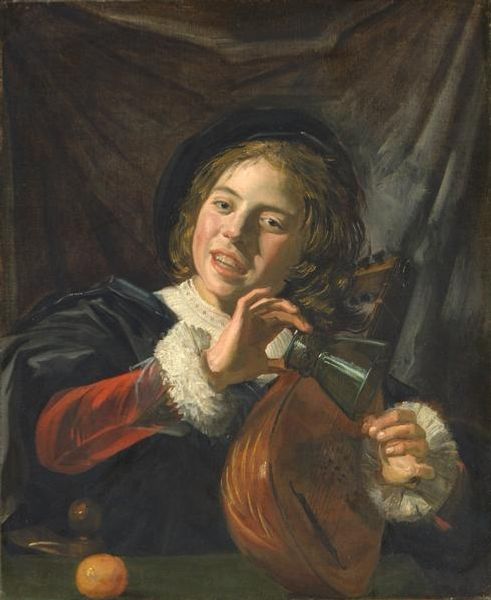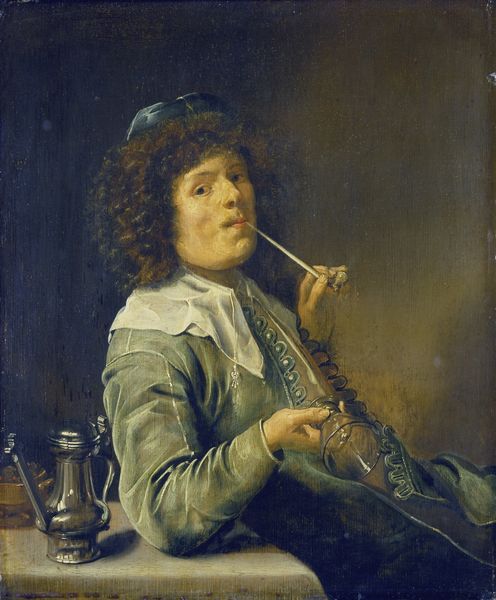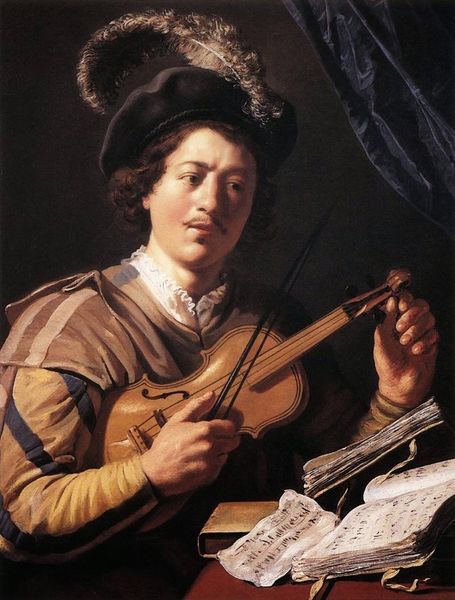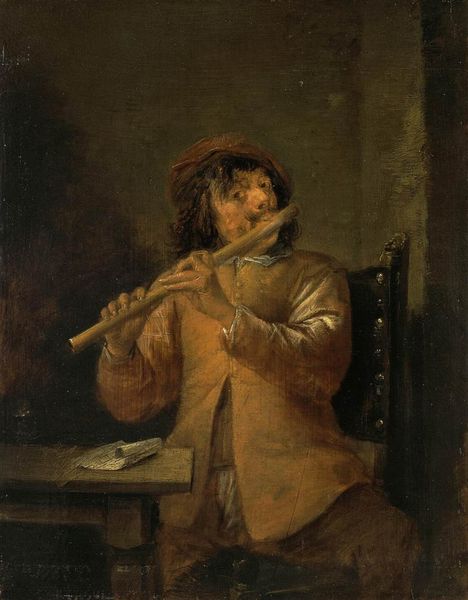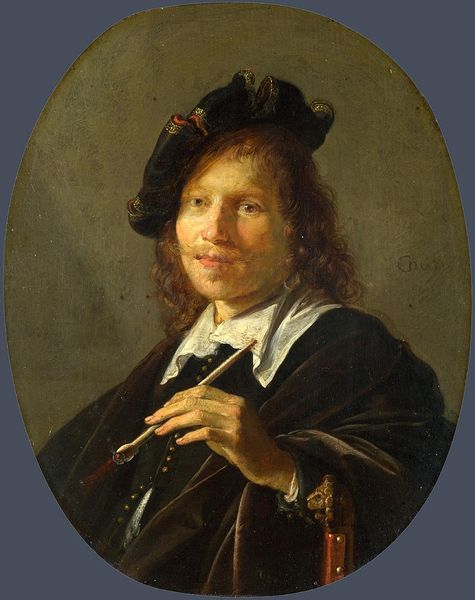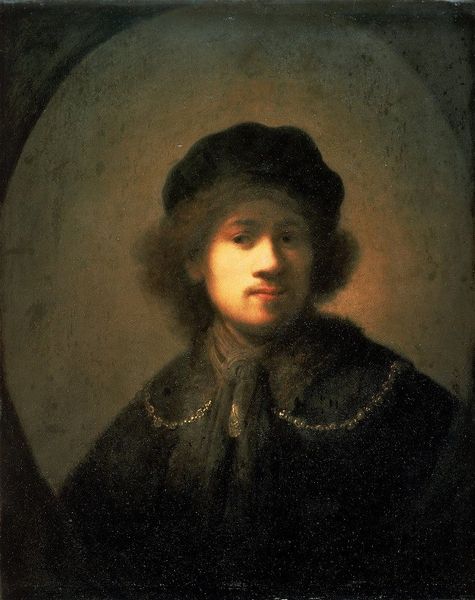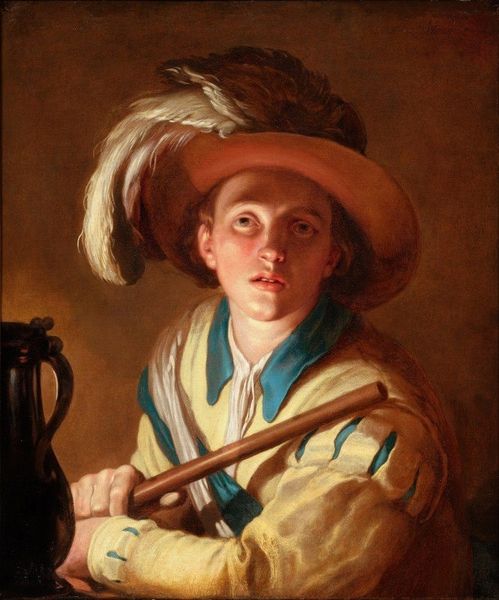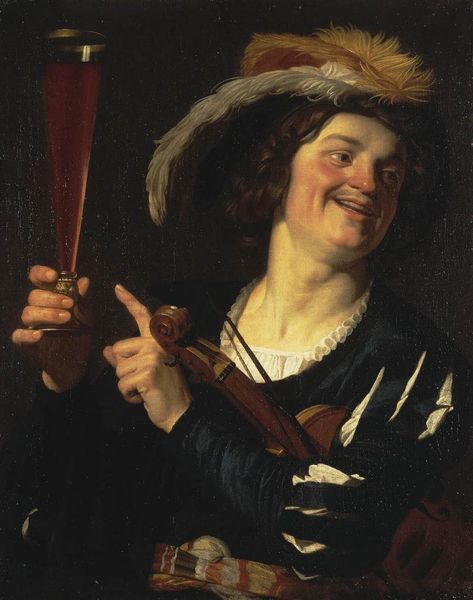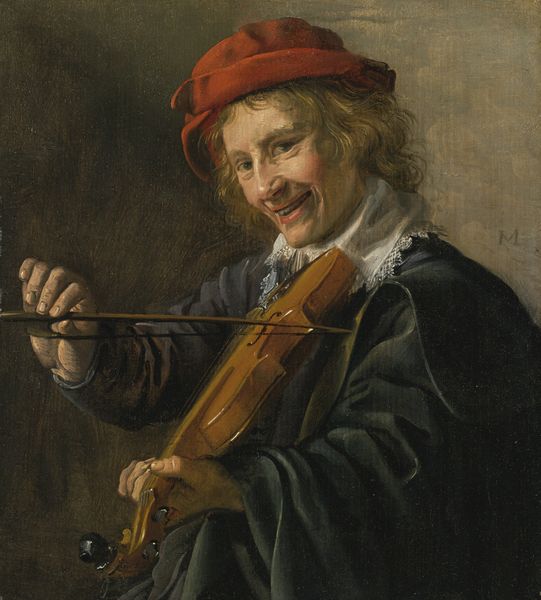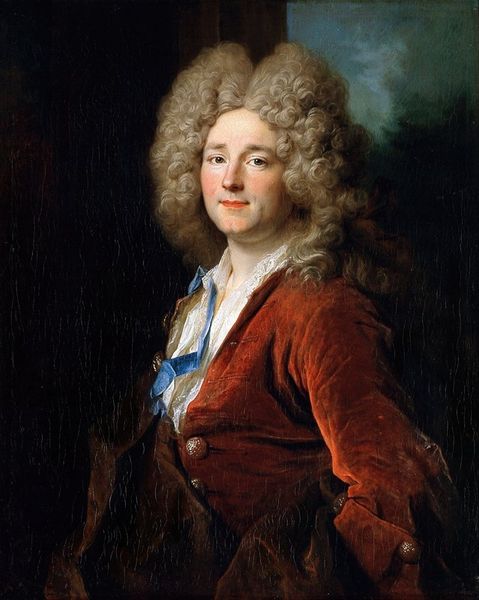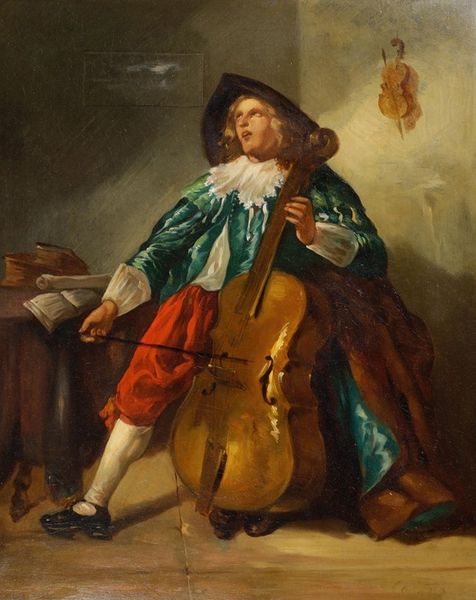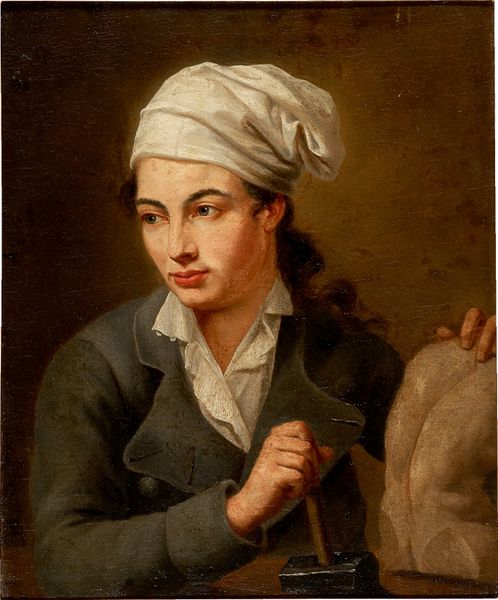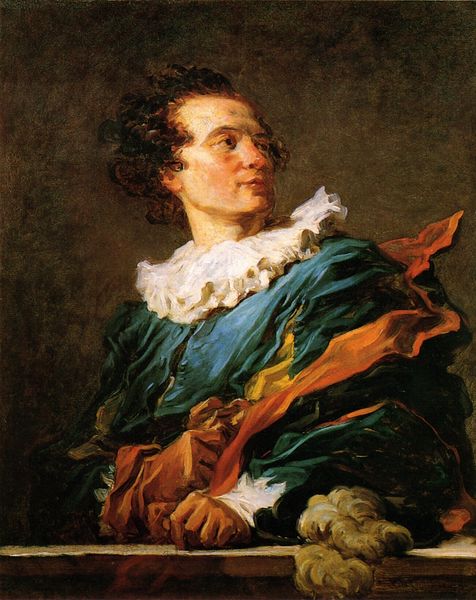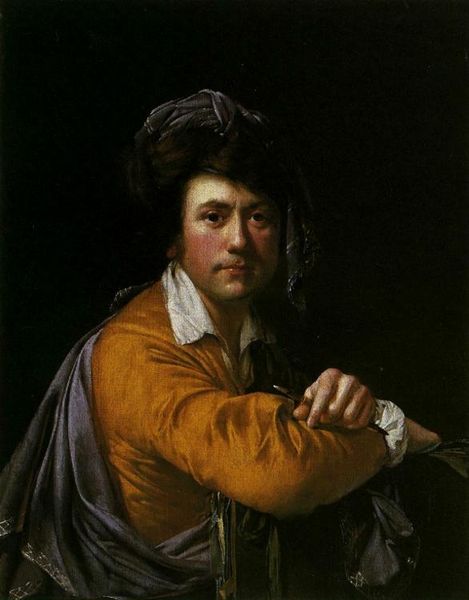
Rembrandt as Shepherd 1636
0:00
0:00
rembrandtvanrijn
Amsterdams Historisch Museum, Amsterdam, Netherlands
#
character portrait
#
portrait reference
#
portrait head and shoulder
#
animal portrait
#
animal drawing portrait
#
portrait drawing
#
facial portrait
#
portrait art
#
fine art portrait
#
digital portrait
Copyright: Public domain
Here we see Rembrandt van Rijn's painted self-portrait, "Rembrandt as Shepherd." During the Dutch Golden Age, the concept of identity became more fluid, influenced by economic shifts and new social structures. Rembrandt, always interested in the emotional resonance of the human face, places himself in the guise of a shepherd, challenging conventional class-based roles. The painting complicates social and gender expectations through its playful portrayal of the artist. His attire, adorned with ornamental details, positions him outside the traditional representations of shepherds in art. His features, framed by a garland of leaves, have an androgynous quality that defies clear categorization. The flute and the shepherd's crook act as metaphors for artistic inspiration and the pastoral myth, creating a character that is both real and imagined. He seems to be asking: can the artist embody multiple roles at once? This introspective piece invites us to consider the fluidity of identity and the emotional complexities of self-representation.
Comments
No comments
Be the first to comment and join the conversation on the ultimate creative platform.
